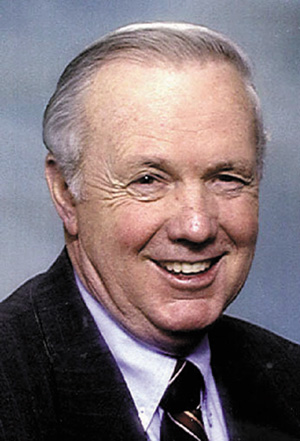No. 977 THE INTANGIBLE VALUE OF GOOD WILL!
No. 977
Jim Davidson -- NEWSPAPER COLUMN
THE INTANGIBLE VALUE OF GOOD WILL!
Several years ago I remember hearing the late Earl Nightingale make the statement, “We can’t be much better than we know how to be.” This is so true, but the real benefit comes from asking another question: How do we learn new things?
In real life, we learn them in basically three ways: from study, from observation and from experience. During our visit today I would like to share the benefits of truly understanding, and putting into practice, something we call good will. For some people this could literally mean the difference between success and failure. For example, we know from observation that a business is not going to be highly successful without having good will on the part of a very high percentage of their customers.
Good will is not something that is tangible, that is to say, something we can see and touch. Rather it is intangible -- we can’t see or touch it but it is there just the same. In the beginning, customers may go to one store because of convenience or lower prices, but they will stop if the attitudes of store employees is negative and they get the feeling they are not appreciated.
Let me bring this concept a little closer to home, to an individual who lives far below his or her potential because they continually turn people off. A while back a friend of mine, who is a very good person, ordered a hand-crafted product from a store that had to be ready by a certain date and was going to take several days to produce. As time approached when the product was going to be needed, he e-mailed the store asking if it was ready. Finally his e-mail was returned and his product was ready. Rather than saying “thank you” and just picking it up, my friend sent a “curt” note saying that a simple phone call would have helped.
On the surface this does not appear to be a big deal, but my friend missed a good opportunity to build good will and friendship that would have resulted in better service in the future. Once in a blue moon this kind of “curt” attitude would not make much difference, but getting into the habit of doing this could make a real difference. As I said, my friend is a very fine person, but he often comes across in the wrong way.
Now, contrast this example with a personal experience I had a few days ago. My next-door neighbor, who has a tree trimming service, painted my house using his big “boom” truck. We borrowed another neighbor’s spray gun, and I later thanked this neighbor for the use of it. He said, “You can have anything I have.” I responded with, “Same here.”
Now, that is good will. I would do anything to help him and he would do anything to help me. The secret, if there is one, is that we both know that we would never take advantage of the other. You make friends by being one, and this is not just about neighbors, it applies to everyone you do business with or have a personal relationship with.
This simple concept of “good will” can be linked to another principle that is also vital to personal success -- the slight edge. When we understand and use those little things in dealing with others, they have a way of compounding over time into a pattern of responsibility and personal behavior that is necessary for making it to the top. We all know that cream rises to the top and being the cream of the crop in dealing with others sets us apart. Success, more income, more rewards and a feeling of personal satisfaction, is sure to follow.
---
(EDITOR'S NOTE: Jim Davidson is a public speaker and syndicated columnist. You may contact him at 2 Bentley Drive, Conway, AR 72034. To begin a bookcase literacy project visit www.bookcaseforeverychild.com. You won’t go wrong helping a needy child.)
